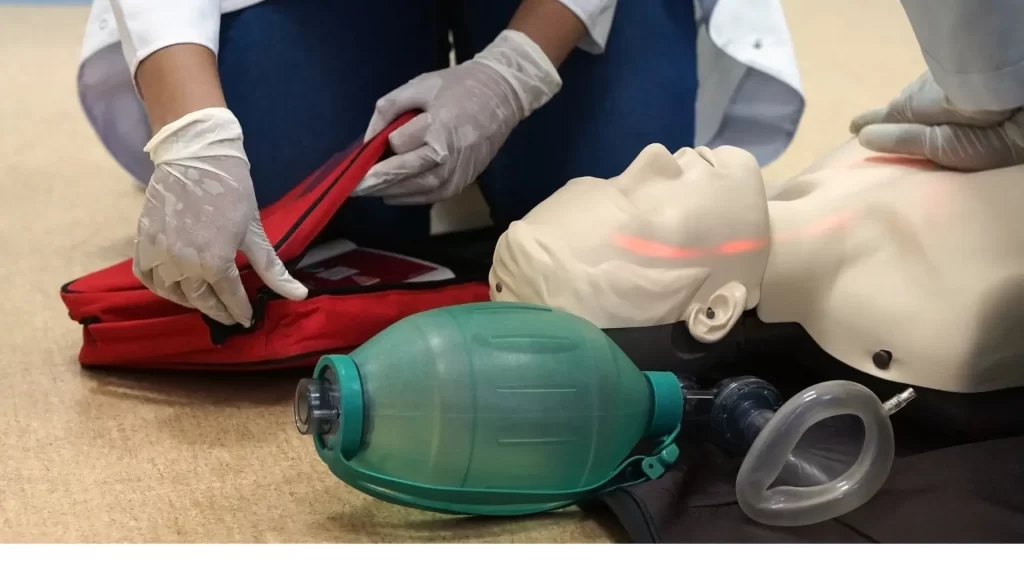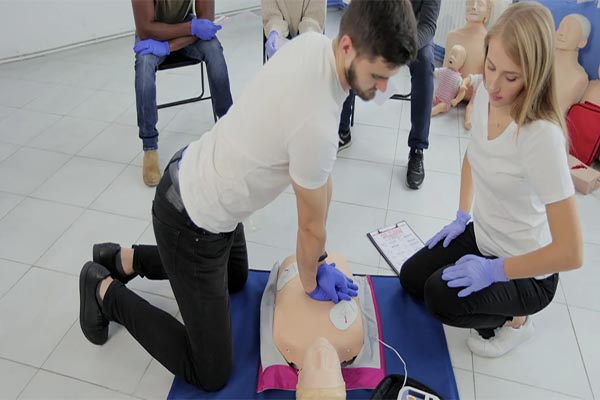
In healthcare facilities, every second counts during an emergency. Cardiopulmonary resuscitation (CPR) training is a vital skill that can make the difference between life and death. This article explores the importance of CPR training in healthcare settings, the benefits it brings, and why it is essential for healthcare providers.
CPR training is a fundamental part of emergency response training for healthcare providers. It equips them with the skills to act quickly and effectively during cardiac emergencies. This training is not just for doctors and nurses but for all staff members, including administrative and support personnel.
When someone experiences a cardiac arrest, their chance of survival decreases by 10% with each minute that passes without intervention. CPR can double or even triple a victim’s chances of survival. In a healthcare facility, where patients are already vulnerable, the ability to respond immediately is critical.
Cardiac arrest is one of the leading causes of death worldwide. By ensuring that all healthcare providers are trained in CPR, healthcare facilities can significantly reduce mortality rates. Effective CPR can maintain blood flow to vital organs until advanced medical care is available.
CPR training provides numerous benefits for healthcare providers, enhancing their ability to respond to emergencies and improving patient outcomes.

CPR training boosts the confidence of healthcare providers. Knowing they have the skills to save a life makes them more prepared and less anxious during emergencies. This confidence can lead to quicker and more decisive actions, which are crucial in life-threatening situations.
In a healthcare setting, emergencies often require a coordinated response from multiple team members. CPR training includes scenarios that simulate real-life emergencies, helping teams practice working together effectively. This practice improves communication and coordination, ensuring a seamless response when an actual emergency occurs.
CPR training is not a one-time event. Regular refresher courses are necessary to keep skills sharp and up-to-date with the latest guidelines. Continuous training ensures that healthcare providers are always ready to provide the best possible care.
To maximize the benefits of CPR training, healthcare facilities need to implement comprehensive and effective programs. Here are some key components of a successful CPR training program:
Healthcare providers should undergo CPR training regularly. The American Heart Association recommends that healthcare providers renew their certification every two years. Regular training sessions ensure that skills are maintained and updated.
Effective CPR training involves hands-on practice with manikins. This practice allows healthcare providers to get a feel for the correct technique and depth of chest compressions. Hands-on practice is essential for building muscle memory and ensuring that providers can perform CPR correctly under pressure.
Training programs should include simulated emergency scenarios that mimic real-life situations. These simulations help healthcare providers practice their skills in a controlled environment, improving their ability to respond quickly and effectively during actual emergencies.
Certification ensures that healthcare providers meet the required standards for CPR proficiency. Recertification courses keep providers updated on the latest techniques and guidelines. Healthcare facilities should track and manage the certification status of all staff members to ensure compliance.
Advancements in technology have revolutionized CPR training, making it more effective and accessible.
High-fidelity manikins offer realistic training experiences. These manikins can simulate various cardiac conditions and provide real-time feedback on the performance of chest compressions and ventilations. This feedback helps healthcare providers refine their techniques and improve their skills.
Online training modules offer flexibility and convenience. Healthcare providers can complete theoretical components of CPR training at their own pace, freeing up time for hands-on practice. Online modules can also be used for refresher courses, ensuring that providers stay updated on the latest guidelines.
Mobile apps and virtual reality (VR) offer innovative ways to enhance CPR training. Apps can provide instant access to CPR guidelines and instructional videos, while VR can simulate immersive emergency scenarios. These technologies make training more engaging and effective.

CPR training has a direct impact on patient outcomes. By equipping healthcare providers with the skills to respond quickly and effectively, CPR training improves the chances of survival for patients experiencing cardiac emergencies.
Studies have shown that facilities with regular CPR training programs have higher survival rates for cardiac arrest patients. Prompt and effective CPR can keep patients alive until more advanced medical care is available.
Properly performed CPR reduces the risk of complications such as brain damage. By maintaining blood flow to the brain and other vital organs, CPR helps preserve neurological function and improve overall patient outcomes.
Patients and their families trust healthcare providers to deliver the best possible care. Knowing that all staff members are trained in CPR enhances this trust, as patients feel more secure in the knowledge that they are in capable hands during emergencies.
CPR training is an essential component of emergency response training in healthcare facilities. It equips healthcare providers with the skills and confidence to act quickly and effectively during cardiac emergencies, saving lives and improving patient outcomes. By implementing comprehensive CPR training programs and leveraging technology, healthcare facilities can ensure that their staff is always prepared to provide life-saving care.
In the fast-paced environment of healthcare, every second counts. Investing in CPR training is an investment in patient safety and quality care. Make sure your healthcare facility prioritizes CPR training for all staff members – it could be the difference between life and death.
Are you ready to make a difference in your community and ensure the highest level of care for your patients? Don’t wait until an emergency strikes. Get your CPR certification today at CPR Classes Near Me. Our comprehensive training programs are designed to equip you with the skills and confidence you need to respond effectively during cardiac emergencies.
Enrolling in our CPR certification course is easy. Simply visit our website, choose a class that fits your schedule, and register online. For any questions or assistance, feel free to contact our friendly support team.
By obtaining your CPR certification, you are not only advancing your career but also preparing to save lives. Take the first step towards becoming a certified lifesaver with CPR Classes Near Me. Don’t delay – enroll today and be ready to act when it matters most.
Register Now and join a community of professionals dedicated to making a positive impact through high-quality CPR training. Your commitment today could save a life tomorrow.
Our primary goal is to ensure that you receive a top-quality CPR/First Aid certification. With our in-person training in Austin, you can learn CPR and BLS in just one class. Your presence is all that’s needed to continue with your lesson! During your session, you will complete all the live-training components necessary to ensure you receive your AHA Healthcare Provider certification card.
Our CPR Classes in Austin are discounted to $59.95 (saving you $20), and our CPR + First Aid Class is offered at $79.95 (also saving you $20). When looking for CPR Classes, ensure to check for the American Heart Association seal. Other sites might seem cheaper but frequently lack the official training credentials demanded by employers.
Upon successful completion of the course, you will obtain a CPR certification that is valid for two years. The AHA CPR certification is recognized with the highest acceptance rate among employers nationwide.
Indeed! Enroll in any CPR Certification Austin BLS course to extend your certification for an additional two years. The in-person BLS course and the Renewal Class are identical.
Anyone capable of completing the course independently should consider pursuing CPR training and CPR Certification. There is no minimum age restriction for obtaining a CPR certification in Austin through the American Heart Association (AHA)..
CPR training needs to be carried out in person to guarantee its effectiveness. Our experienced instructors offer an engaging and dynamic learning experience. Typically, employers do not recognize CPR certifications that are obtained solely through online courses.
All authorized American Heart Association training centers are obligated to display the entire video. After a three-hour session with CPR Classes Near Me Austin, your BLS CPR eCard will be promptly issued by the instructor on the same day!